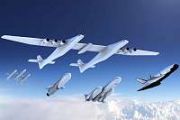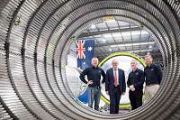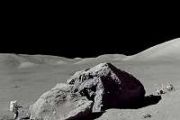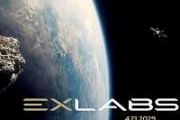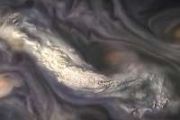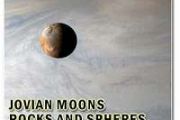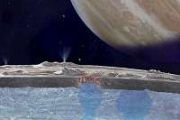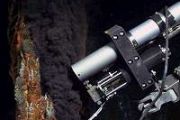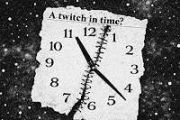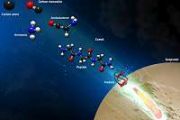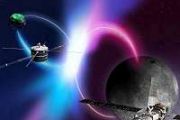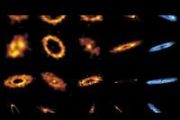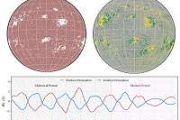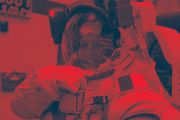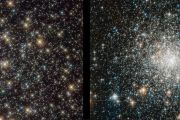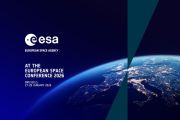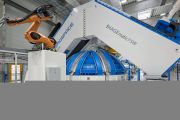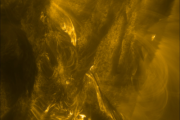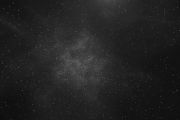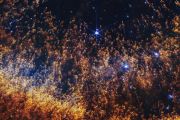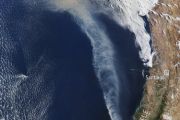
Copernical Team
NATO partners with Planet Labs to boost global surveillance and early warning capability
 Planet Labs PBC (NYSE: PL) has secured a seven-figure agreement with NATO to deliver a comprehensive daily monitoring and intelligence platform, reinforcing the Alliance's ability to respond swiftly to global developments. The contract comes amid heightened efforts by European nations to bolster defense readiness in light of evolving geopolitical tensions.
Under this agreement, Planet will
Planet Labs PBC (NYSE: PL) has secured a seven-figure agreement with NATO to deliver a comprehensive daily monitoring and intelligence platform, reinforcing the Alliance's ability to respond swiftly to global developments. The contract comes amid heightened efforts by European nations to bolster defense readiness in light of evolving geopolitical tensions.
Under this agreement, Planet will ICEYE radar imaging added to SkyFi satellite data platform
 SkyFi and ICEYE US have launched a strategic partnership to incorporate ICEYE's synthetic aperture radar (SAR) data into the SkyFi Earth observation platform. The agreement initiates a broader collaboration aimed at expanding access to commercial radar imaging, with ICEYE tasking and archive features set to appear soon in SkyFi's web and mobile tools.
ICEYE operates the largest commercial
SkyFi and ICEYE US have launched a strategic partnership to incorporate ICEYE's synthetic aperture radar (SAR) data into the SkyFi Earth observation platform. The agreement initiates a broader collaboration aimed at expanding access to commercial radar imaging, with ICEYE tasking and archive features set to appear soon in SkyFi's web and mobile tools.
ICEYE operates the largest commercial China expands disaster monitoring with launch of Zhangheng 1B satellite
 China successfully launched its Zhangheng 1B electromagnetic monitoring satellite on Saturday using a Long March 2D rocket from the Jiuquan Satellite Launch Center in the Gobi Desert, according to the China National Space Administration.
Lifting off at 3:56 pm, the rocket delivered the Zhangheng 1B into its designated orbit. This satellite marks China's first dedicated spacecraft for monit
China successfully launched its Zhangheng 1B electromagnetic monitoring satellite on Saturday using a Long March 2D rocket from the Jiuquan Satellite Launch Center in the Gobi Desert, according to the China National Space Administration.
Lifting off at 3:56 pm, the rocket delivered the Zhangheng 1B into its designated orbit. This satellite marks China's first dedicated spacecraft for monit Unlocking new insights into space with multi-messenger lensing
 Combining gravitational lensing with new instruments capable of detecting gravitational waves and electromagnetic signals could revolutionize cosmology, astrophysics, and fundamental physics, according to a new study by an international team led by University of Birmingham scientists.
The approach, known as multi-messenger gravitational lensing, uses the ability of massive galaxies and gal
Combining gravitational lensing with new instruments capable of detecting gravitational waves and electromagnetic signals could revolutionize cosmology, astrophysics, and fundamental physics, according to a new study by an international team led by University of Birmingham scientists.
The approach, known as multi-messenger gravitational lensing, uses the ability of massive galaxies and gal Voyager raises over 400 million in public debut to fuel growth and innovation
 Voyager Technologies (NYSE: VOYG) has completed its initial public offering, closing the sale of 14,200,645 Class A common shares at $31.00 each. This total includes the full exercise of the underwriters' option to purchase an additional 1,852,258 shares. The offering generated approximately $402.3 million in net proceeds after deductions for underwriting fees and expenses.
The company pla
Voyager Technologies (NYSE: VOYG) has completed its initial public offering, closing the sale of 14,200,645 Class A common shares at $31.00 each. This total includes the full exercise of the underwriters' option to purchase an additional 1,852,258 shares. The offering generated approximately $402.3 million in net proceeds after deductions for underwriting fees and expenses.
The company pla AST SpaceMobile Gains Long-Term Access to 45 MHz Mid-Band Spectrum Across North America
 AST SpaceMobile (NASDAQ: ASTS) has announced a Settlement Term Sheet involving Ligado Networks, Viasat, and Inmarsat that, once finalized, will provide the company with long-term access to up to 45 MHz of valuable lower mid-band spectrum in the U.S. and Canada for its direct-to-device satellite services.
Under the agreement, Inmarsat will support AST SpaceMobile's rights to use up to 40 MH
AST SpaceMobile (NASDAQ: ASTS) has announced a Settlement Term Sheet involving Ligado Networks, Viasat, and Inmarsat that, once finalized, will provide the company with long-term access to up to 45 MHz of valuable lower mid-band spectrum in the U.S. and Canada for its direct-to-device satellite services.
Under the agreement, Inmarsat will support AST SpaceMobile's rights to use up to 40 MH China leads international drive to build global space weather monitoring network
 Chinese researchers, in partnership with global scientific bodies, have launched an international initiative to construct the most extensive ground-based monitoring system yet aimed at decoding the physics and dynamics of space weather.
At the Second Belt and Road Conference on Science and Technology Exchange in Chengdu, Sichuan province, five institutions formalized new collaborations wit
Chinese researchers, in partnership with global scientific bodies, have launched an international initiative to construct the most extensive ground-based monitoring system yet aimed at decoding the physics and dynamics of space weather.
At the Second Belt and Road Conference on Science and Technology Exchange in Chengdu, Sichuan province, five institutions formalized new collaborations wit ALMA maps evolution of planet-forming gas disks over millions of years
 An international astronomy collaboration has uncovered new details about the life cycles of gas and dust disks that form planets, using observations from the Atacama Large Millimeter/submillimeter Array (ALMA). The findings, published in a dedicated issue of The Astrophysical Journal, stem from the AGE-PRO program (ALMA Survey of Gas Evolution of PROtoplanetary Disks).
Through AGE-PRO, ast
An international astronomy collaboration has uncovered new details about the life cycles of gas and dust disks that form planets, using observations from the Atacama Large Millimeter/submillimeter Array (ALMA). The findings, published in a dedicated issue of The Astrophysical Journal, stem from the AGE-PRO program (ALMA Survey of Gas Evolution of PROtoplanetary Disks).
Through AGE-PRO, ast Unprecedented new device at PPPL will help to unravel the mysteries of the universe
 Princeton Plasma Physics Laboratory unveils a machine with unmatched capabilities to explore the phenomenon known as magnetic reconnection
In a spacious room with towering ceilings, a gleaming device resembling a metal barrel the size of an SUV lies on its side, ready to perform some science.
Known as the Facility for Laboratory Reconnection Experiments (FLARE), the machine represent
Princeton Plasma Physics Laboratory unveils a machine with unmatched capabilities to explore the phenomenon known as magnetic reconnection
In a spacious room with towering ceilings, a gleaming device resembling a metal barrel the size of an SUV lies on its side, ready to perform some science.
Known as the Facility for Laboratory Reconnection Experiments (FLARE), the machine represent Volcanic discovery at Jezero Crater could reshape timeline of Mars
 Georgia Tech researchers have determined that a prominent mountain along Jezero Crater's rim is likely a volcano, offering fresh insight into Martian geology and potentially its habitability. Named Jezero Mons, the mountain spans nearly half the width of the crater and may help refine the planet's geologic timeline through sample dating.
The findings appear in the journal Communications Ea
Georgia Tech researchers have determined that a prominent mountain along Jezero Crater's rim is likely a volcano, offering fresh insight into Martian geology and potentially its habitability. Named Jezero Mons, the mountain spans nearly half the width of the crater and may help refine the planet's geologic timeline through sample dating.
The findings appear in the journal Communications Ea 




